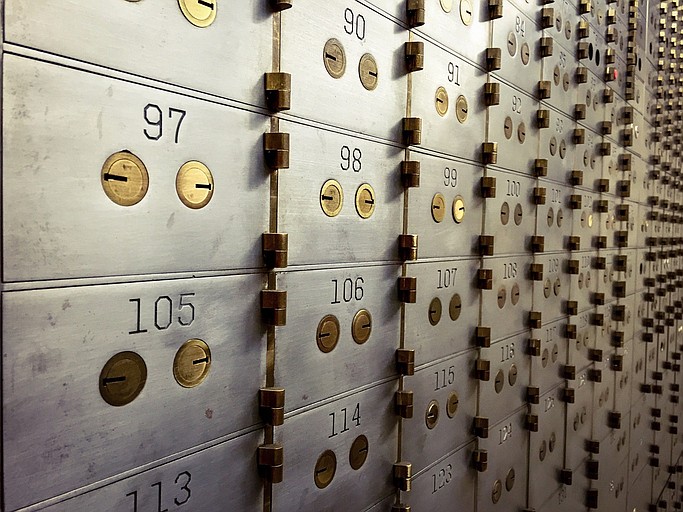View other columns by Mark Kennedy
My mother was a banker. For most of four decades, the 1960s through the 1990s, she was a teller at bank branches in Columbia, Tenn.
Those were the heydays of branch banking, before direct deposit and debit cards and online banking became ubiquitous. The need for regular, face-to-face transactions with a bank teller was still nearly universal. Paychecks had to be deposited; government checks needed to be cashed.
I remember my mother, who died in 2006, coming home exhausted on the day each month when Social Security checks hit the mailboxes of the senior citizens in my hometown. But even on routine Friday afternoons, the line of customers was sometimes five-deep at the teller windows at the First Farmers & Merchants bank in downtown Columbia.
Back then - and to some extent even now - bank tellers had a different relationship with their customers. Unlike retail clerks, bank tellers established durable relationships with their walk-ins. It's not unusual for them to exchange small talk, and to know about one another's families.
I know my mother, as the head teller at one of the town's biggest banks, was recognized everywhere we went in Columbia. When I was a teenager, people would take me aside and say things like, "Wilma is one of the nicest people I know."
I think as we get older we begin to understand how our lives and values are shaped by our parents. Here are 10 things I learned from the banker in our house.
1) Save 15 percent of your income, and you'll never have to worry about money. Long before 401(k) savings plans came into vogue, Mother's bank set aside (and invested) 15 percent of her annual income in a profit-sharing retirement account.
Do that for 30 years at any job, and the magic of compounding has time to work for you. When she retired, at age 62, Mother's investment balance was, shall we say, robust.
"Buy and hold" is the best investment strategy. The investments inside that profit sharing account were professionally managed and periodically rebalanced. Mother saw her updated account balance in a once-a-year letter and had no input on the asset mix. This forced a buy-and-hold pattern and worked to her advantage over a 30-year career. She was never tempted to tinker with the investment mix or to try to time the ups and downs of the market.
2) Loyalty to a quality employer will be repaid in kind. Mother was completely loyal to her company, friends with the top officers of the bank and indispensable to her customers. This is a potent mix for any employee and is probably the reason she eventually became an officer herself.
In her final couple of years at the bank, she began to lose her mental edge, and her bosses shifted her to a customer service position that was a better fit for her. Loyalty breeds loyalty. (Or at least it used to.)
3) Smile, even on your worst days, and people will notice. Mother was one of those people who was able to mask her problems on the job. She cared for an invalid husband and was the primary breadwinner for our family. When things were tough at home, Mother never let her mood change at work.
4) A few dollars a year invested in a bank-vault lock box buys a lot of peace of mind. Mother taught us that preserving important family documents in a bank lock box was a cheap, but important, form of insurance.
There is something soothing about knowing that your birth certificate, passport and family heirlooms are safe behind concrete walls. She also impressed upon us the importance of keeping up with the key to our lock box, as the alternative involved men with drills.
5) Important work gets done before 7 a.m. Mother used to work an early morning shift at a "walk-up window" facing the street in front of the bank. It was a place where downtown merchants could get their banking transactions out of the way before opening their shops. Mother was always energized by morning work and taught me that you can get a lot done before your co-workers arrive for the day.
6) There is psychological value in hard assets. Mother used to collect silver coins, which she kept in the family lock box. I remember, she once had enough silver money to buy a used car.
You don't have to be a survivalist to feel the satisfaction of having access to something besides a checkbook and a credit card. There's just something viscerally satisfying about having a little stash of gold or silver.
7) Having a relationship with a community bank is important to your economic health. I've had people tell me that they can't remember the last time they stepped inside a bank building. Still, there's a lot to be said about having a community bank home where people actually know your name.
Sooner or later most of us need to borrow money. When that time comes for you, you'll be in a much better position if you have an established relationship with a bank. Really, wouldn't you rather sit at a banker's desk near your home than talk to somebody long-distance about your auto loan application?
8) Owning some stock in the place you work is an effective motivator. Mom had a bit of bank stock. I'm not sure if it motivated her to work harder, but I do know she felt she was an important part of the operation and took pride in her company. Those impulses are important.
9) Working around people who understand money rubs off. While she was never overly concerned with money, Mother learned a lot about personal finance just by working at a bank. In turn, I learned a lot by just being around her.
10) Money is really not hard if you accept a few principles: Live below your means. Save all you can. Invest for the long run.
The bank is to money as the public library is to knowledge. We'd all be better off if we spent more time at both places.
Contact Mark Kennedy at mkennedy@timesfreepress.com.

